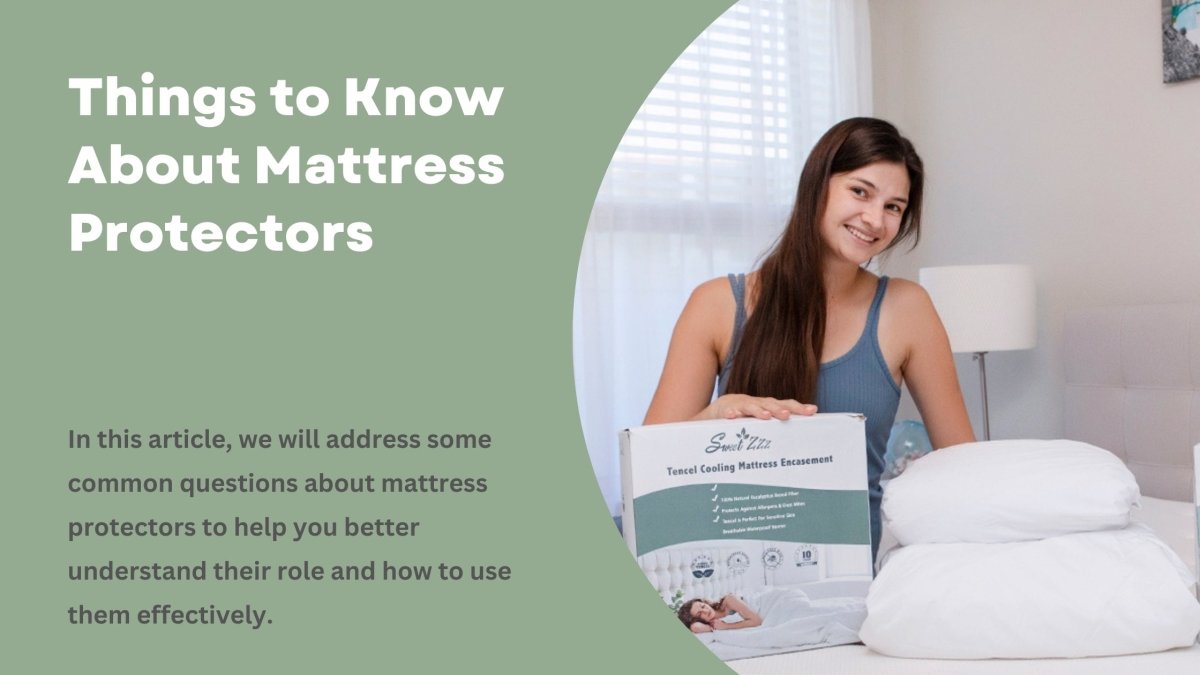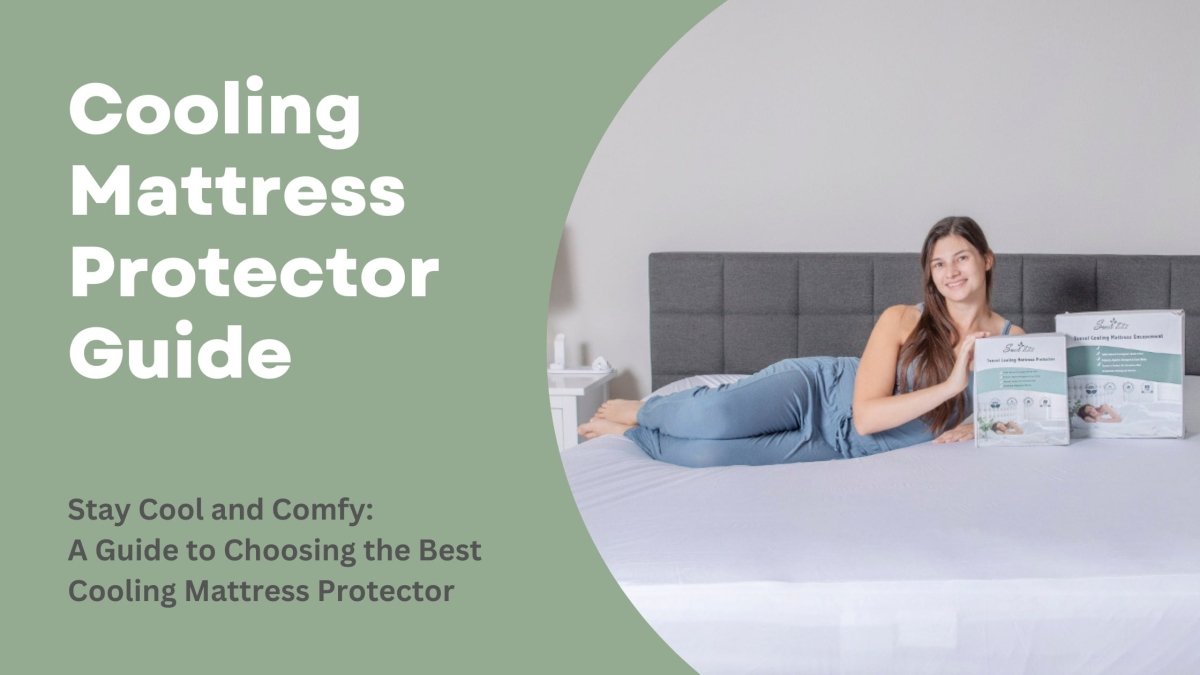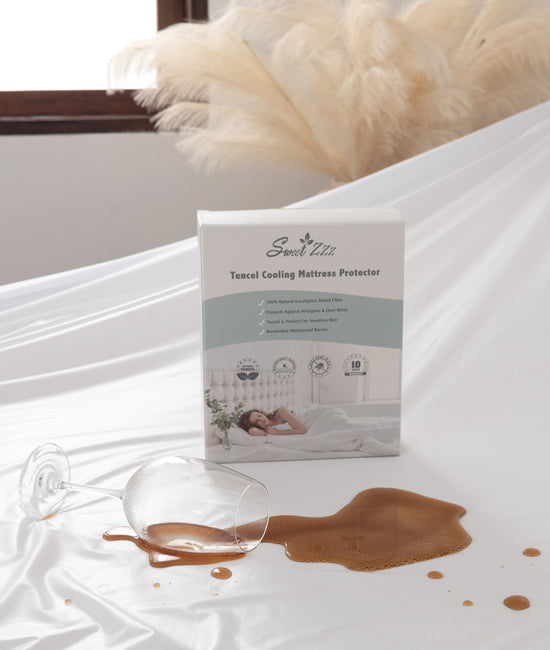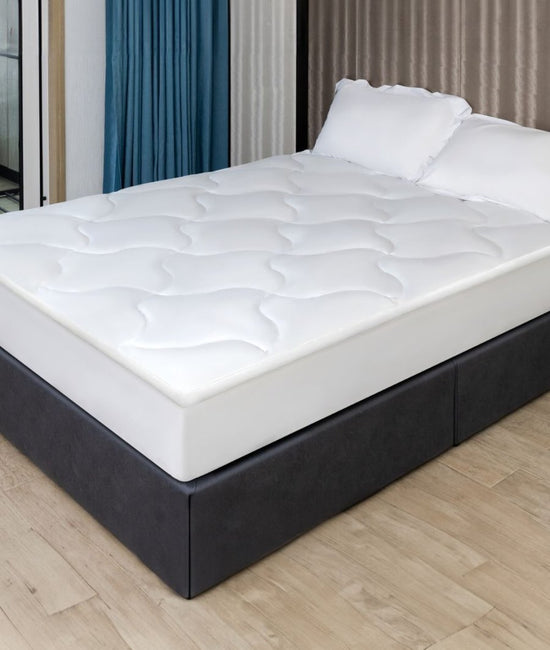Things to Know About Mattress Protectors
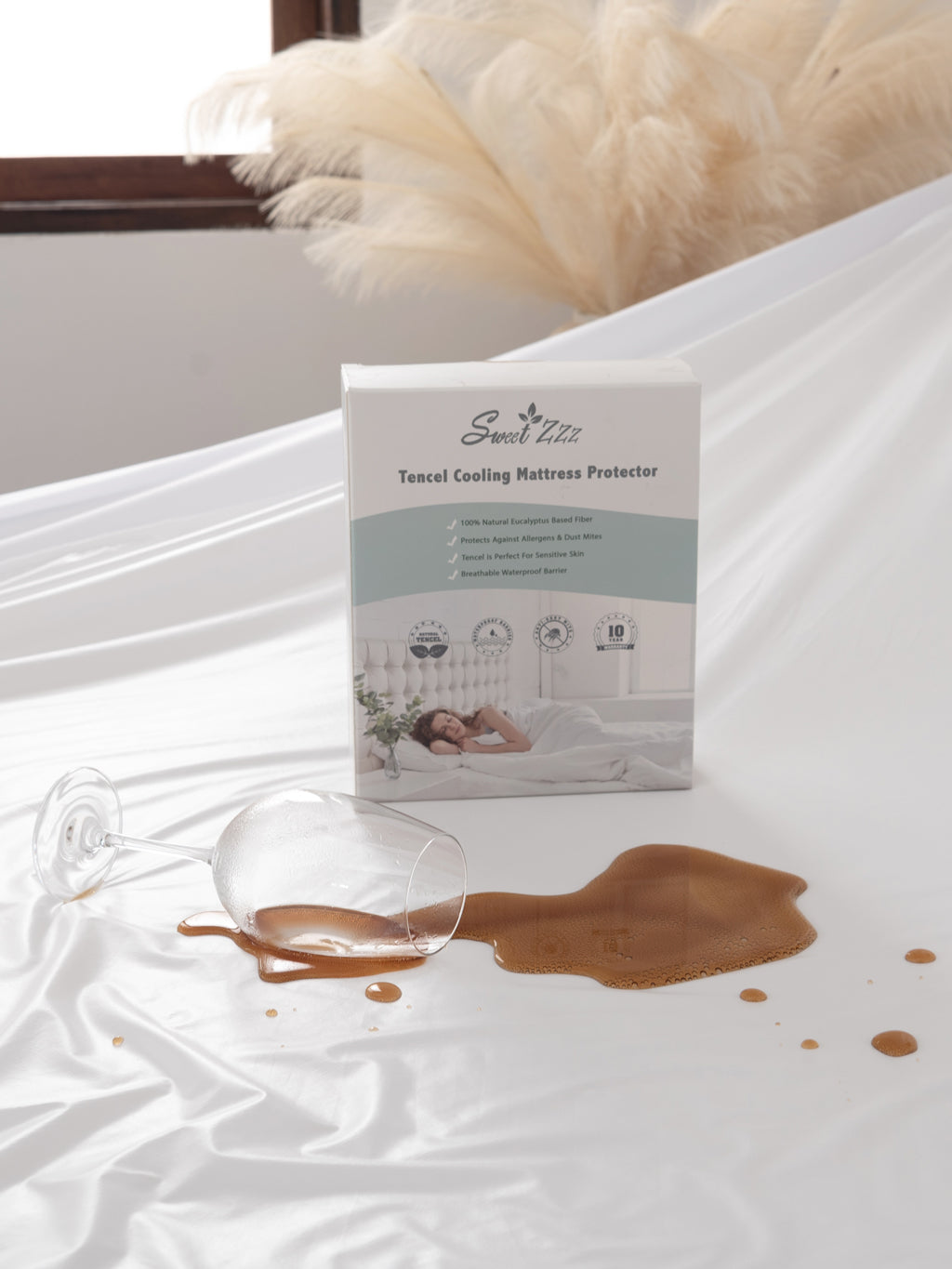
Things to Know About Mattress Protectors
A mattress protector is an essential addition to your bedding setup, offering numerous benefits that contribute to a cleaner, healthier, and more comfortable sleep environment. In this article, we will address some common questions about mattress protectors to help you better understand their role and how to use them effectively.
How often to wash a mattress protector?
It's essential to maintain the cleanliness of your mattress protector to ensure its effectiveness. Generally, you should wash your mattress protector every two to three months. However, if you suffer from allergies or have had any spills or accidents on your bed, you may need to wash it more frequently. Always follow the care instructions on the label of your mattress protector to prevent damage during the cleaning process.
How to put on a mattress protector?
Putting on a mattress protector is usually a straightforward process, similar to fitting a fitted sheet. Here's a step-by-step guide:
- Remove all bedding from your mattress, including sheets, blankets, and pillows.
- Unfold the mattress protector and identify the top and bottom sides. The top side typically has a soft, quilted surface, while the bottom side may have a waterproof layer.
- Align the corners of the mattress protector with the corners of your mattress.
- Starting at one corner, stretch the elasticized edge of the mattress protector over the corresponding corner of the mattress. Repeat for the remaining corners, making sure the protector is evenly distributed and fits snugly around the mattress.
- Smooth out any wrinkles or folds to ensure a comfortable sleep surface.
Do you put sheets and mattress pad/topper on the mattress protector?
Yes, you should place a fitted sheet over the mattress protector to provide additional comfort and maintain the cleanliness of the protector. As for mattress pads or toppers, they typically go between the mattress and the mattress protector. This arrangement helps protect both the mattress and the pad/topper from spills, stains, and allergens.
Do mattress protectors make you hot?
Some mattress protectors, particularly those made from synthetic materials like polyester, may trap heat and make you feel warmer during the night. However, natural materials like cotton, bamboo, and Tencel are more breathable and provide better temperature regulation. If you're concerned about overheating, opt for a mattress protector made from a natural, breathable material.
What is the difference between mattress pad, mattress topper, and mattress protector?
Mattress pad: A mattress pad is a thin, quilted layer that provides a small amount of cushioning and support. It is typically placed on top of the mattress and under the fitted sheet, and may have elasticized corners or straps to secure it in place. Mattress pads are primarily used to enhance the comfort of a mattress or to add a modest layer of protection against spills and stains.
Mattress topper: A mattress topper is a thicker, more substantial layer designed to significantly alter the comfort and support of your mattress. Toppers can be made from a variety of materials, such as memory foam, latex, or down. They are usually placed directly on top of the mattress and beneath the mattress protector and fitted sheet.
Mattress protector: A mattress protector is a thin, fitted sheet-like accessory that covers and protects the mattress from spills, stains, allergens, and dust mites. It is designed to prolong the life of your mattress and maintain a clean and healthy sleep environment.
Conclusion:
Understanding the role and proper use of a mattress protector is crucial for maintaining a comfortable and hygienic sleep environment. By addressing these common questions, we hope to help you make informed decisions about your bedding setup and ensure a better night's sleep.


